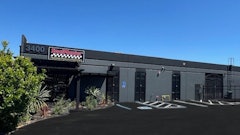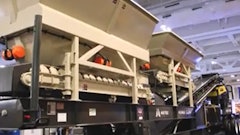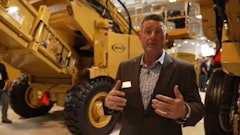
Your morning routine probably includes a cup of hot coffee to wake you up and get you going for the day. Once you’re on your way and happily caffeinated, have you ever thought about the waste that’s created by your Cup of Joe?
When people talk about waste from these cafés, they tend to focus on the massive pile of disposable cups that end up in landfills. But the average coffee shop also throws out around 22 pounds of coffee grounds a day; in most big cities, that can add up to around 200,000 tons of coffee ground waste per year.
Professor Arul Arulrajah, who leads the geotechnical group in the Center for Sustainable Infrastructure, is also an avid coffee drinker.
“I see the baristas throwing away the used coffee grounds and I think, ‘why not look at this as an engineering material?’” he says.
For the past few years, Arulrajah and PhD candidate Teck-Ang Kua have collected used coffee grounds from cafés surrounding Swinburne’s Hawthorn campus in Victoria, Australia.
The objective of this study was to evaluate the possibility of combining a highly organic waste, coffee grounds, with industrial wastes, steel slag and fly ash, into a sustainable subgrade construction material by a geopolymerization process.
They dry the grounds in an oven to around 120 ° F for five days, then sieve the grounds to filter out lumps.
The grounds are then mixed. They use seven parts coffee grounds with three parts of slag—a waste product from steel manufacturing. Finally a liquid alkaline solution is added to bind everything together.
The mixture is compressed into cylindrical blocks that prove strong enough to use as the subgrade material that sits under a road surface in road embankments specified by various road authorities.
“On average the cafés we collect from dispose of about 330 pounds of coffee grounds per week," Arulrajah says. “We estimate that the coffee grounds from Melbourne’s cafés could be used to build three miles of road per year. This would reduce landfill waste and the demand for virgin quarry materials."
Arulrajah and his team believe that this green geopolymer and the research findings have the potential to transform the construction industry in the sustainable usage of waste by-products in future road subgrades.
The researchers at Swinburne University of Technology have also been investigating the use of crushed brick or glass and concrete for use in road construction.
Fuel Your Morning & Your Car
Since coffee waste is so abundant, other companies are investigating additional ways to recycle these grounds for use beyond waste in a landfill.
Bio-bean, which was founded in London by an architecture student, plans to start turning coffee waste into fuel for cars and energy to heat local homes.
After the company collects the waste, they bring it to a large local processing plant, where machines dry the grounds, extract the oil and turn the rest into biomass pellets that can be used in heaters. The oil will be used as biofuel for cars and trucks.
Unlike biofuels like corn ethanol that are made from crops, the waste coffee biofuel is considered an "advanced," or carbon-neutral biofuel. These materials also cheaper than other alternatives, in part because of the fact that they're using something that would otherwise be thrown away—coffee shops currently have to pay to have the grounds trucked to landfills, incinerators, or anaerobic digestion plants.
Bio-bean says they already have customers eager to buy the product.
Cheers to fueling your body while contributing to a more sustainable world!


























